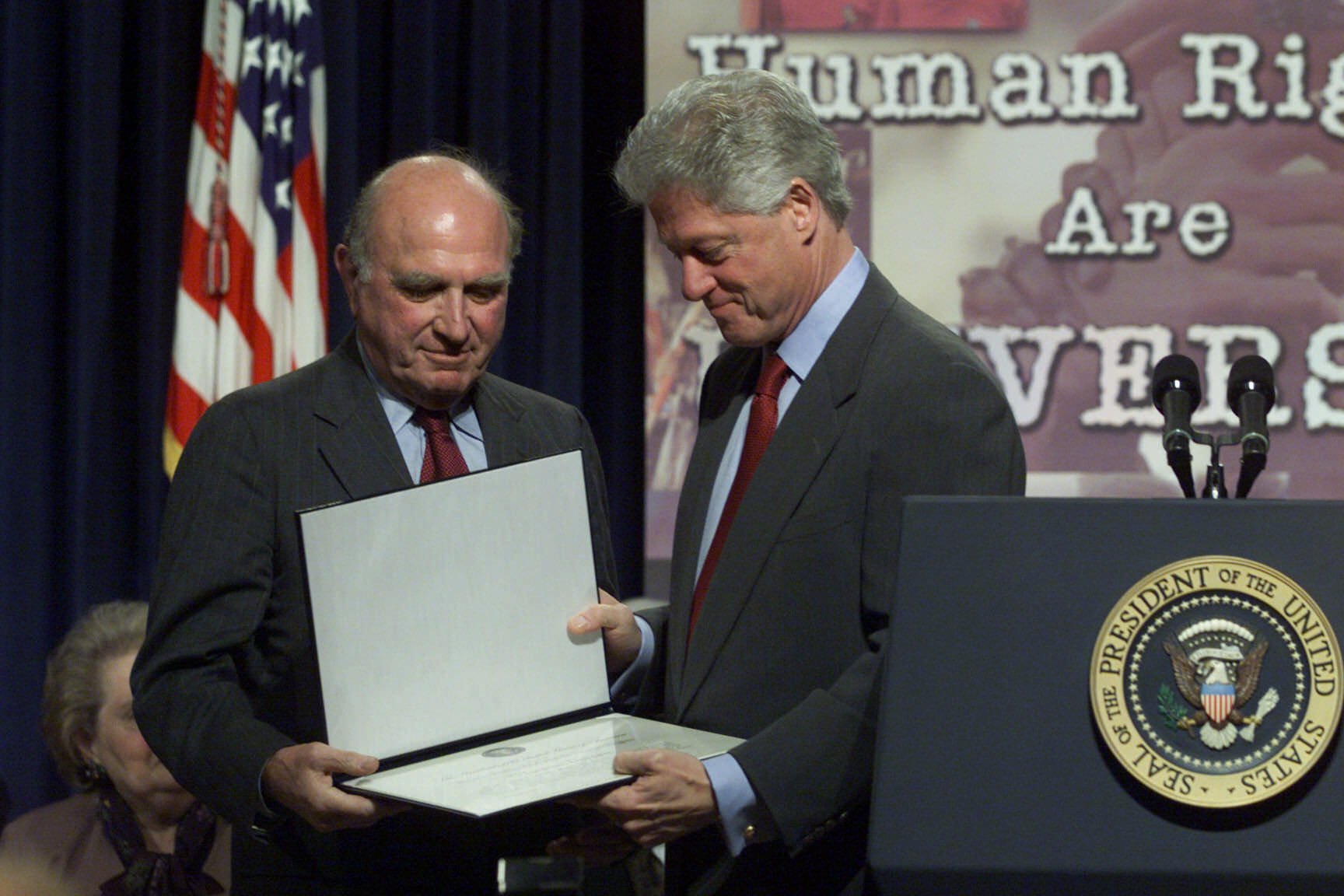Norman Dorsen (1930–2017) was a leading academic and civil liberties lawyer. He served as the Frederick I. and Grace A. Stokes Professor of Law at New York University School of Law and also as the counselor to the university president. He made many of his contributions to First Amendment jurisprudence during his long career at the helm of the American Civil Liberties Union (ACLU).
Dorsen was born in 1930 in New York City, and he grew up there, attending public schools. He received his bachelor’s degree in 1950 from Columbia University and his law degree in 1953 from Harvard, where he served as editor of the law review.
Upon graduation, Dorsen served in the military before embarking upon his impressive legal career. He clerked for Judge Calvert MacGruder of the First Circuit Court of Appeals and then for U.S. Supreme Court justice John Marshall Harlan II. After completing his clerkship in 1958, Dorsen practiced with the New York law firm Dewey Ballantine.
Dorsen had a decades-long leadership role in the ACLU
Dorsen joined the faculty of the New York University Law School in 1961. In the 1960s he also began his decades-long leadership role in the ACLU, first serving as general counsel (1969–1976), then as president (1976–1991). Nadine Strossen (2001), his successor as president, remarked that “the ACLU has never had a better friend than Norman Dorsen” (p. 38).
Dorsen has argued First Amendment cases before the Supreme Court
The numerous cases Dorsen has argued before the Supreme Court include the First Amendment case Law Students Research Council v. Wadmond, 401 U.S. 154 (1971). In addition, “he helped write petitioner’s brief in Roe v. Wade and appeared amicus curiae in the Gideon case, the Pentagon Papers case, the Nixon Tapes case and the Flag Desecration case” (New York University School of Law).
Dorsen has authored books dealing with First Amendment issues
He was the founding president of the Society of American Law Teachers and of the U.S. Association of Constitutional Law. In addition, Dorsen has authored many books dealing with First Amendment issues, including Frontiers of Civil Liberties (1968), The Rights of Americans (1971), and The Embattled Constitution (1987).
In 2000, President Bill Clinton awarded Dorsen the Eleanor Roosevelt Award for Human Rights.
Yale law professor Judith Resnik (2001) has summed up Dorsen’s excellence as a law teacher and a Supreme Court litigator, and in many other roles: “He knew about ‘multi-tasking’ long before it became a buzz word, as he worked simultaneously in several modes, litigating, organizing, and lobbying, all with a common purpose: to make the world better for people who were not like himself ” (p. 30).
He died in July 2017 at the age of 86.
David L. Hudson, Jr. is a law professor at Belmont who publishes widely on First Amendment topics. He is the author of a 12-lecture audio course on the First Amendment entitled Freedom of Speech: Understanding the First Amendment (Now You Know Media, 2018). He also is the author of many First Amendment books, including The First Amendment: Freedom of Speech (Thomson Reuters, 2012) and Freedom of Speech: Documents Decoded (ABC-CLIO, 2017). This article was originally published in 2009.

